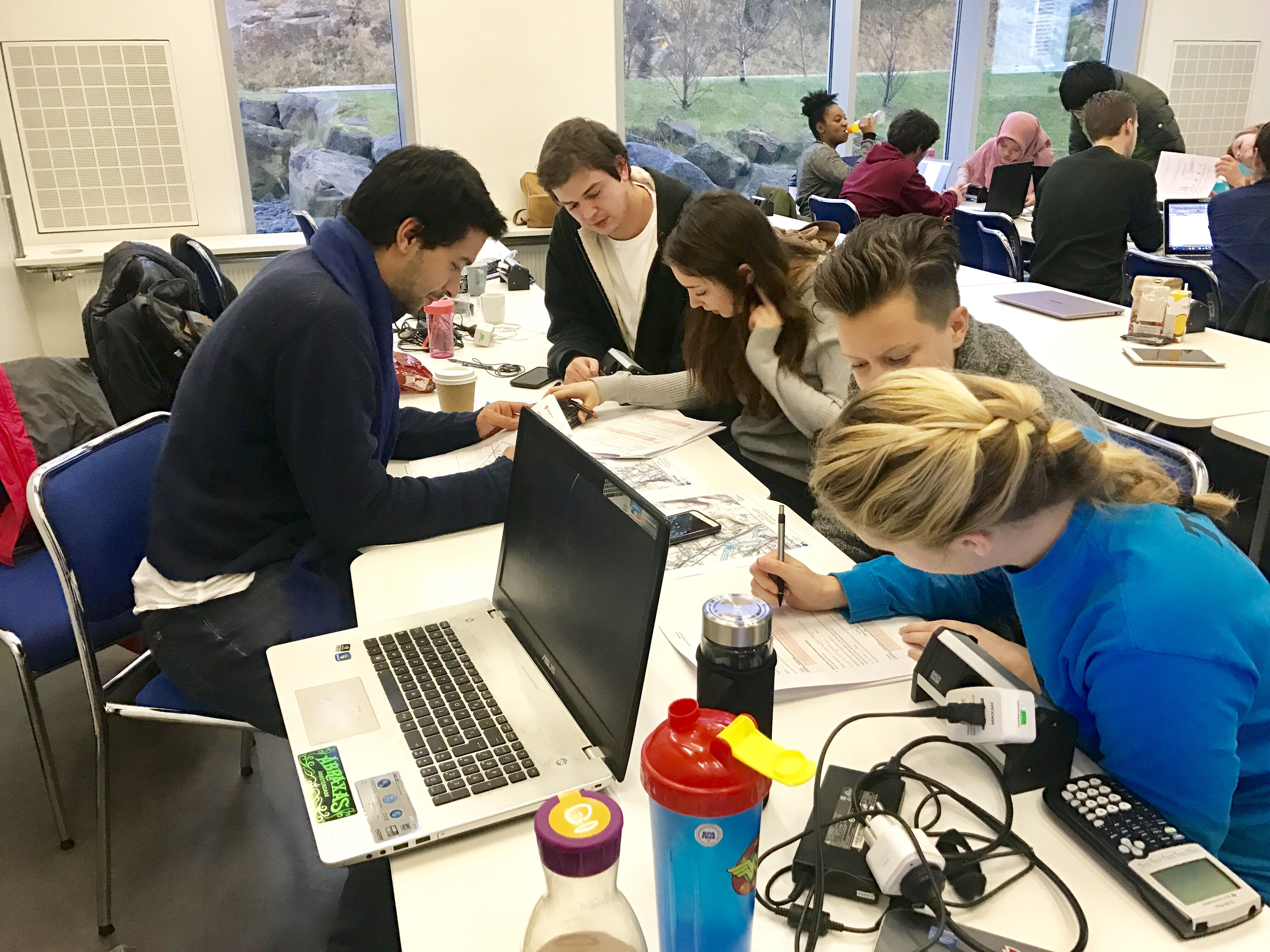New Course: Energy Resources
Thoughts and feedback
REYKJAVIK, November 21 – What sets the Iceland
School of Energy (ISE) graduate program apart is its unrivaled commitment to
emphasize industry involvement in student education. Following the completion
of Energy Geology course, students were introduced to Energy Resources, a
rigorous two-week module taught by a number of industry experts.

This course aimed to provide students with unique, first-hand perspectives of various renewable energy resources from industry experts. With topics that ranged from energy law to conceptual modeling, students were introduced to not only the different types of renewable energy, but also to the relevant topics pertaining to each resource. During this two-weeks course, a total of ten speakers were invited to give lectures.
In an interview after his completion of the course, first year ISE graduate student, Alexandre Raux, expressed his enthusiasm for it, stating,
I was very excited to meet people from the industry who are experts in their fields! I also loved that the course was more practical than theoretical. We had to solve practical problems at the end of the classes. Looking at real-life cases like this helped me see the bigger picture.
Christopher Mathews, one of the guest lecturers who covered the topic on Geothermal Laws, also shared his view on the course:
In the field of energy, experts in science, engineering, finance, and law all have important roles to play. I think the most challenging problems are those touching on many disciplines. Solving these problems calls for input from people with expertise in many different specialties. Courses like this help give students a broader perspective on energy issues to see problems and solutions they might otherwise have never known existed.
When asked about his favorite part of the course, Alex replied,
I was surprised that the lecturers were very approachable. This makes it easier to ask questions. My favorite lecture was the one covering about hydropower. I do not have a lot of prior knowledge about hydropower, but the lecturer made it so easy to understand.
By the end of the course, ISE students were equipped with a holistic knowledge that will help them further delve, develop specialties and solve complex problems in the industry. Chris succinctly summed up the challenge for the students:
You're about to take on one of the most important and difficult problems ever faced - how to safely provide, now and in the future, the energy needed by an ever-expanding human population. To contribute your maximum value to solving that problem, you need to prepare yourself to see beyond the limits of your own specialization – and to help others see beyond the limits of theirs.
List of Course Lecturers
Name
Position, Organisation
Topic(s) Presented in Course
Einar Gunnlaugsson
Resource Manager, Reykjavik Energy
Geothermal Geoscience, Monitoring Well Output and Reservoir Changes
Christopher Mathews
PhD Student, Iceland School of Energy
Geothermal Law
Ásbjörg Kristinsdóttir
Project Director, Landsvirkjun
Hydropower
Marta Rós Karlsdóttir
Head of Resources, Reykjavik Energy
Sustainability of Production, Short and Long Term Production Planning
Gunnar Gunnarsson | Bergur Sigfússon
Specialist
in Advanced Research | Geochemist, Reykjavik Energy
Reservoir
and Environmental Monitoring
Hólmfríður Sigurðardóttir
Environmental Manager, Reykjavik Energy
Mitigation of Environmental Impact
Anette Kærgaard Mortensen
Geologist, Landsvirkjun
Conceptual Modeling
Ingvi Gunnarsson
Specialist in Geological Research, Reykjavik Energy
Hot Water and Waste Fluids
Stephen Kari
Wind Energy Project Manager, Landsvirkjun
Wind Power
